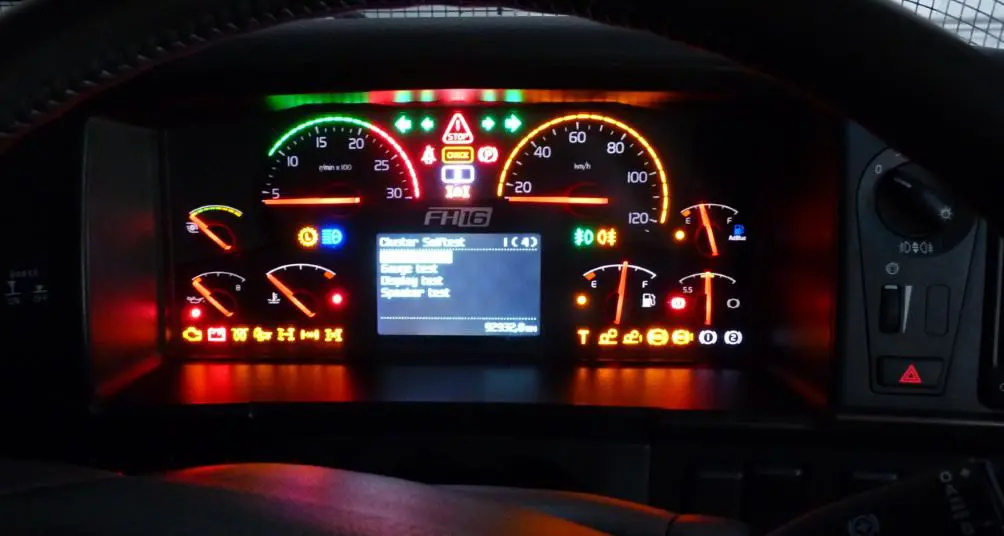Misfires can be incredibly frustrating, and they can also be very harmful to your car’s engine.
If your engine is misfiring, it’s most likely running on a too lean or too rich fuel-to-air mixture, which could lead to a number of problems – some of them can be quite expensive if ignored for a long time.
In this article, we’ll discuss what causes a misfire and how you can go about fixing it. We’ll also cover some of the most common exhaust-related culprits that can lead to misfires, including leaks in your exhaust manifold or other parts of your car’s exhaust system.
Related: Can an Exhaust Manifold Leak Cause Rough Idle?
Can an Exhaust Leak Cause a Misfire?
Yes, an exhaust leak can definitely cause a misfire.
Now, the whole exhaust system is very long and there are many places for an exhaust leak to occur, but the only way that an exhaust leak could cause a misfire is if the exhaust leak is located before the upstream O2 sensor.
How & Why Does an Exhaust Leak Cause a Misfire?
To understand why an exhaust leak causes a misfire, we need to quickly go over what the O2 sensor is and what it is used for.

The O2 sensor is an extremely important component of your car’s fuel injection system. It sits right before the catalytic converter and monitors the amount of oxygen present in the exhaust stream.
Why does the car need to monitor the oxygen levels inside the exhaust pipe? Well, it does that to measure the air-to-fuel ratio, or to put it simply, monitor if the car is burning the fuel properly. This is extremely important in order for the car’s ECU to know whether it needs to add more fuel or subtract fuel.
Every car is constantly trying to keep its air-to-fuel ratio at 14.7:1 – one gram of fuel and 14.7 grams of air. If that sounds complicated, then don’t worry – it is.
Anyway, the O2 sensor constantly monitors whether the air-to-fuel ratio is correct. However, if an exhaust leak occurs somewhere before the upstream O2, then it can seriously mess up the O2 sensor’s readings.
When an exhaust leak occurs before the upstream O2 sensor, then fresh outside air gets sucked in through the leak, enters the exhaust stream, and mixes with the exhaust gases. What this does is it artificially increases the oxygen levels inside the exhaust pipe, which the O2 sensor then reads and interprets as a too lean air-to-fuel ratio, when it’s actually not.
Because the car’s ECU has no idea that there is an exhaust leak, which is throwing off the O2 sensors readings and setting off a false lean condition – it simply trusts whatever the O2 sensor is reading and compensates by adding more fuel. This makes the car run rich and misfire.
What Problems Can an Exhaust Leak Cause?
In most cases, an exhaust leak is relatively harmless, especially if it’s detected soon and repaired shortly. However, if an exhaust leak is left ignored for a long time ( thousands of miles), then it can cause very serious and expensive problems.
It’s always a good idea to get exhaust leaks fixed ASAP before they cause damage. A lot of exhaust leak repairs require a welder, however, you can fix smaller exhaust leaks by yourself – no welding required.
How? By using muffler cement! If you’re unsure how to use muffler cement, check out our complete muffler cement guide.
Also Read: Can an Exhaust Leak Cause Loss of Power?
Carbon Monoxide Poisoning
If the exhaust leak is bad enough, it can allow carbon monoxide to enter the car’s cabin.
This can cause serious health issues and even lead to carbon monoxide poisoning.

The biggest problem with Carbon Monoxide is that it’s a colorless, odorless, non-irritating gas. This means that our bodies can’t see it, nor smell it, and it’s extremely dangerous, especially if it’s inhaled in high concentrations or over a long time period.
Decreased Fuel Mileage
Earlier in this article, we talked about how the exhaust leak causes the engine’s ECU to believe that it needs to add more fuel – this is why an exhaust can worsen your fuel mileage.
When the car is misfiring due to an exhaust leak, it’s most likely because the ECU is dumping too much fuel into the cylinders, and if the car is running rich, then your fuel mileage will obviously go down.
Damage to The Catalytic Converter
If an exhaust leak is left ignored and allowed to worsen, then it can seriously damage your car’s catalytic converter or completely destroy it.

How?
Well, once the ECU starts dumping too much fuel into the combustion chamber, some of the unburnt fuel passes through the exhaust valves and hits the catalytic converter. Unburnt fuel can ignite when it contacts the catalytic converter and melt the converter’s ceramic honeycomb insides, which will completely destroy it.
Symptoms of an Exhaust Leak
To know whether your car has an exhaust leak, you should keep an eye out for the following symptoms:
Loud Exhaust Sound
A noticeable increase in exhaust sound is probably the most common and easiest to recognize symptom of an exhaust leak.
One of the main tasks of the exhaust system is to reduce noise in order to comply with government regulations. For that, the exhaust system needs to be airtight at all times.
However, once an exhaust leak occurs in your exhaust pipes, then exhaust gases start to flow through the leak and increase the sound of your car’s exhaust considerably.
If your car sounds much louder than it did before then you likely have an exhaust leak.
Related: Loud Muffler Sound Comming From The Engine
Loud Ticking Noise
If an exhaust leak occurs somewhere close to the engine, like the exhaust manifold gasket, then the leak will produce a loud and distinct ticking noise.
This ticking noise sounds very similar to the one that your engine’s valvetrain produces, kind of like a lifter ticking noise.
Exhaust Smell Inside The Car
Another symptom of an exhaust leak is the presence of exhaust fumes inside the car.
If you can smell exhaust fumes while driving (especially at idle when the car is sitting still and the AC fan is on) then you likely have an exhaust leak and should get your car checked out as soon as possible.
If an exhaust leak is located close to the engine, then the exhaust fumes coming from it can be sucked in by the AC fan and get inside your car.
Check Engine Light
Another symptom of an exhaust leak is the Check Engine Light being illuminated on your car’s dashboard.

Usually, an exhaust leak will not cause a check engine light, unless the leak is located before the upstream O2 sensor. If the leak is left ignored for long enough, it can get big enough to cause a check engine light.
Reduced Fuel Mileage
Another symptom of an exhaust leak is decreased fuel mileage.
As we mentioned before, an exhaust leak can cause your car to run rich, which means that the engine is getting too much fuel. Because the ECU is commanding to spray more fuel than usual, your car will be using up more fuel than it usually does and your gas mileage will suffer.
If you’ve noticed that your car’s fuel mileage has decreased significantly, then it could be due to an exhaust leak.
Misfiring
Last but not least – misfiring. An exhaust leak can cause a misfire, but it’s pretty rare to happen, unless the exhaust leak is big enough and has been left unchecked for a long time.
What Problems Can an Exhaust Leak Cause?
Other than being annoying, an exhaust leak can cause a few different problems.
Gas Smell & Carbon Monoxide Poisoning
First of all, if the exhaust fumes are finding a way to get inside your car, they may cause some gas smells inside your car, especially when your car is stationary with the engine running.
Furthermore, those exhaust fumes can also be dangerous to your health if inhaled in large quantities or over a long period.
This can lead to carbon monoxide poisoning, which can be very dangerous and even fatal in the worst-case scenario.
Catalytic Converter Damage
Another problem that an exhaust leak can cause is damage to your car’s catalytic converter.
The catalytic converter is one of the most important emission control devices in your car and its job is to convert toxic gases into less harmful gases before they exit the exhaust system.
If the exhaust leak causes the ECU to make the engine run rich, then the excess fuel will damage your catalytic converter over time and might even destroy it.
Fouled O2 Sensors
If the engine is running rich due to an exhaust leak, all of that extra fuel and soot can cause damage to your car’s O2 sensors.
Excess soot and/or fuel can coat the O2 sensors and prevent them from reading the air-to-fuel mixture ratio accurately, which will only make things worse.
Fouled O2 sensors can cause your engine to misfire, significantly reduce engine power and cause a check engine light.
Can a Cracked Exhaust Manifold Cause Misfire?
Yes, while exhaust manifolds rarely crack, they can definitely cause a misfire.
As we said earlier in the article, any exhaust leak that is located before the upstream O2 sensor can cause your engine to misfire.
Final Thoughts
An exhaust leak can cause a misfire, but it’s pretty rare to happen.
If the exhaust leak is left ignored for long enough, it can cause damage to your car’s catalytic converter and O2 sensors.
So, if you’ve noticed any of the symptoms we mentioned in this article, make sure to take your car to a mechanic and have it checked out as soon as possible.
If you have any other questions, feel free to leave a comment below or talk to a professional mechanic for more help.

Eddie is the co-founder of CarCareCamp.com, and the site’s primary contributor.
Under his belt, Eddie has a bachelor’s degree in Automotive Electronics Engineering and almost a decade of experience working as a semi-truck technician (specializing in electrics).

